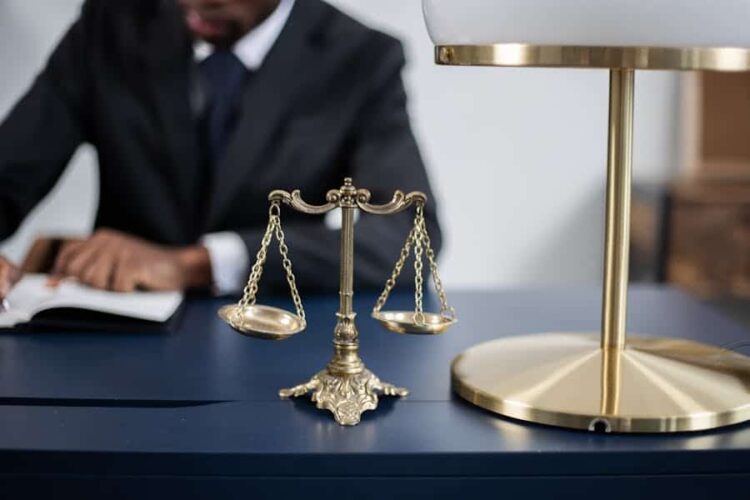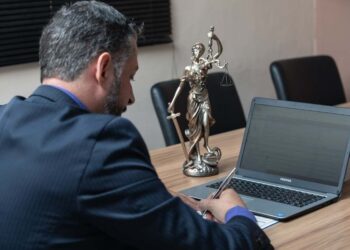In Seattle, criminal defense attorneys employ various strategies to challenge the prosecution’s case. They may question the credibility of witnesses, contest the admissibility of evidence, and highlight procedural errors. In 2022, Seattle reported 52 homicides, the second-highest total after 2020’s 53. This underscores the critical role of defense counsel in safeguarding defendants’ rights.
The prosecution is responsible for upholding justice and fairness. It holds the accused accountable for wrongdoing. This delicate equilibrium is upheld by the integral involvement of criminal defense lawyers, who tirelessly champion defendants’ rights to a just trial by skillfully contesting the prosecution’s arguments to establish a level of doubt deemed rational and justifiable. If someone’s case looks like it needs assistance, they should consider speaking to a Seattle criminal defense lawyer now.
Examining the Proof
The defense attorney’s plan of action to examine proof is the most crucial element. The thorough examination of the evidence put forth by the prosecution team is key. Each fragment is meticulously inspected for any discrepancies or vulnerabilities that may weaken the prosecution’s case. It is imperative that all evidence is genuine and obtained through fair means. Any deviation from these standards can be used to raise objections. By scrutinizing the credibility and significance of the evidence presented in the courtroom, defense attorneys can sow seeds of doubt regarding the prosecution’s storyline.
Questioning Witnesses on the Stand
Witnesses play a role in the prosecution’s argumentation strategy. They are typically considered essential to building a case against the accused individual or party. In response to the prosecution’s reliance on witness testimony during trials, defense attorneys conduct cross-examinations. This process involves questioning the prosecution’s witnesses to assess the accuracy and reliability of their statements. Cross-examination allows the defense to challenge the credibility of witnesses and highlight inconsistencies in their testimonies.
Exploring Different Perspectives
Defense attorneys may present alternative interpretations of the events being examined in court. They might wish to cast doubt on the prosecution’s version of events and disregard the sequence of events and the accuracy of the presented accounts
Challenging the Admissibility of Evidence in Court
One important tactic involves submitting a request to exclude evidence from consideration. This could be done if it was gathered unlawfully and infringed on the defendant’s rights. Evidence that fails to meet requirements may be ruled out by defense attorneys who carefully examine how it was collected. Successful requests to suppress evidence can undermine the strength of the prosecution’s argument. Frequently, it results in different charges or case dismissals.
Questioning the Credibility of Testimonies
Testimony from witnesses can impact the outcome of a trial. Defense lawyers often try to discredit these testimonies by questioning the experts’ credentials or the methodologies they used to form their opinions. They might also bring in their experts to provide viewpoints. By casting doubt on the reliability of expert testimony, defense attorneys aim to weaken the arguments of the prosecution and strengthen their client’s defense.
Focusing on Mistakes in Procedures
During a court case, errors in the process can affect how fair the trial is perceived to be by those involved. Defense lawyers are always on the lookout for mistakes, which could vary from incorrect guidance given to the jury, to problems with how evidence is managed. By pointing out these errors, they can request a new trial or challenge the decision to make sure their client gets a fair chance This careful attention emphasizes how crucial it is to follow legal procedures properly
Discussing Pleas Bargains
Sometimes, criminal defense lawyers might see the benefit in reaching a plea deal. This is ideal when the evidence strongly supports the prosecution case. They can secure outcomes like lesser charges or reduced sentences for their clients and avoid the risks and uncertainties of going to trial. However, it necessitates a comprehensive grasp of the case details and good timing in decision making.
In Conclusion
Defense attorneys use various tactics to contest the prosecution argument and guarantee a fair trial for their clients. They examine evidence and point out procedural mistakes diligently. They uphold fairness in the legal framework and safeguard the rights of defendants. Their role is vital in receiving an impartial trial where justice is served equally for everyone involved. A criminal defense lawyer has the knowledge and unwavering commitment to contribute significantly to maintaining the legitimacy of legal proceedings.










